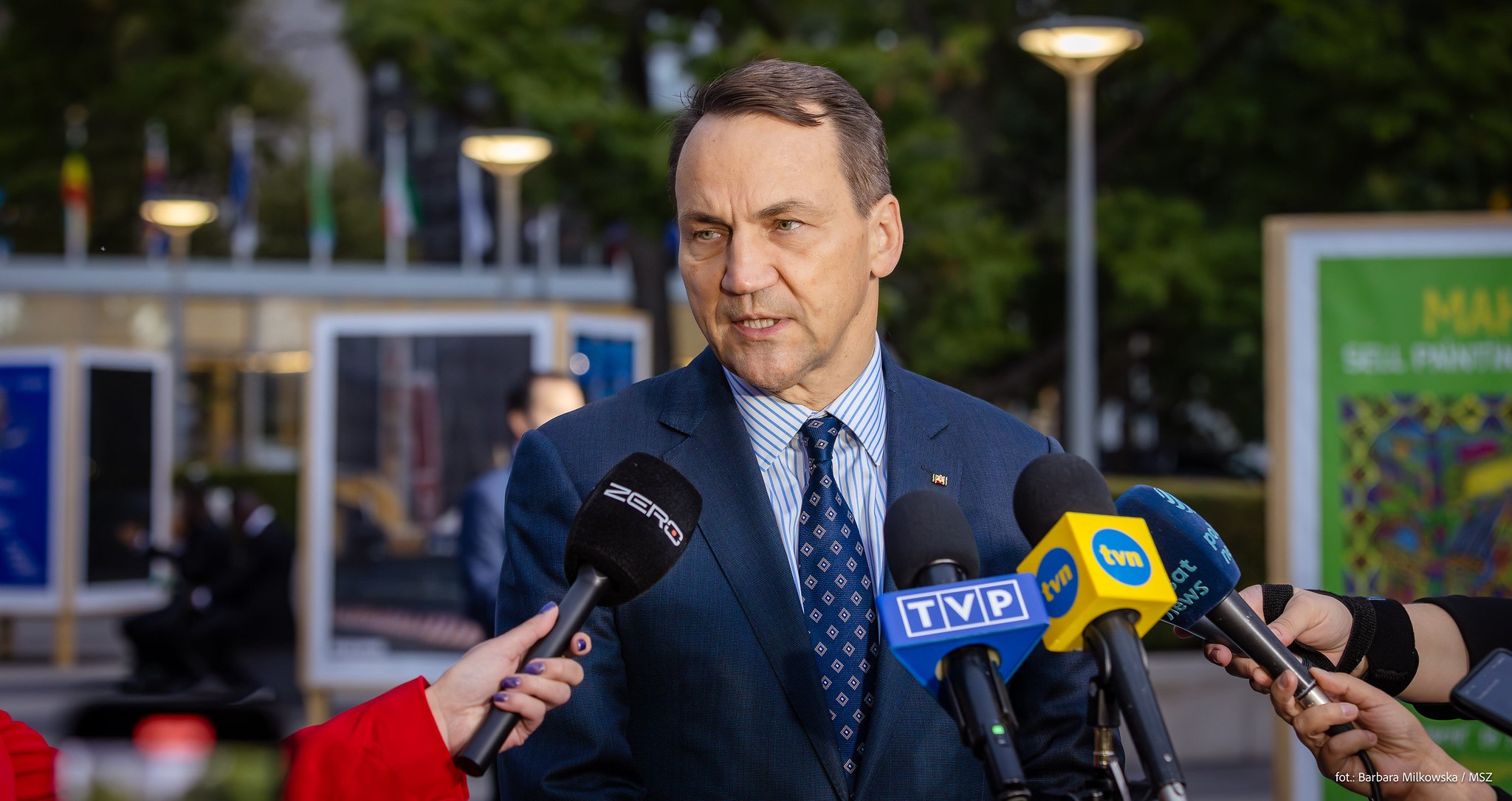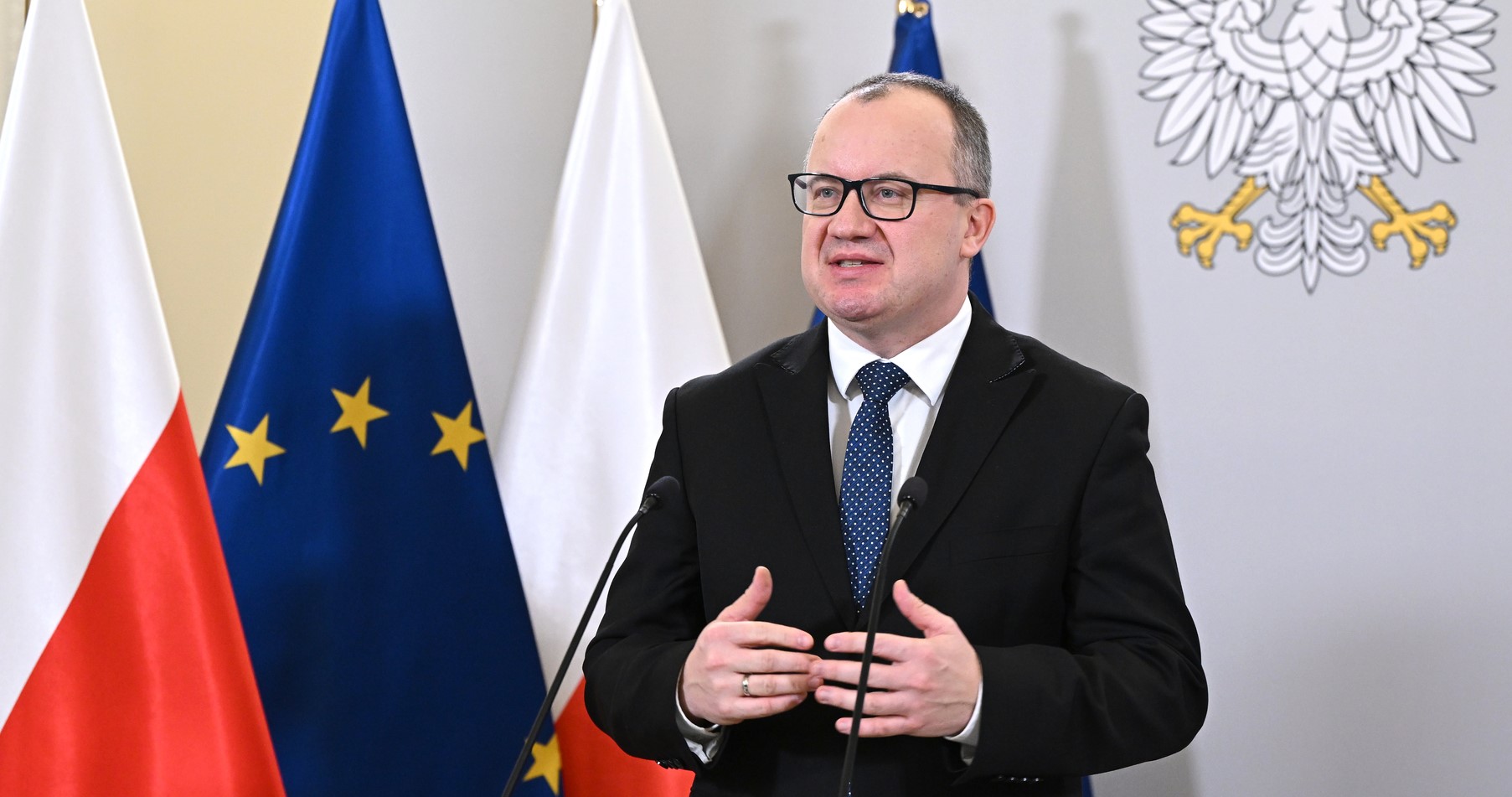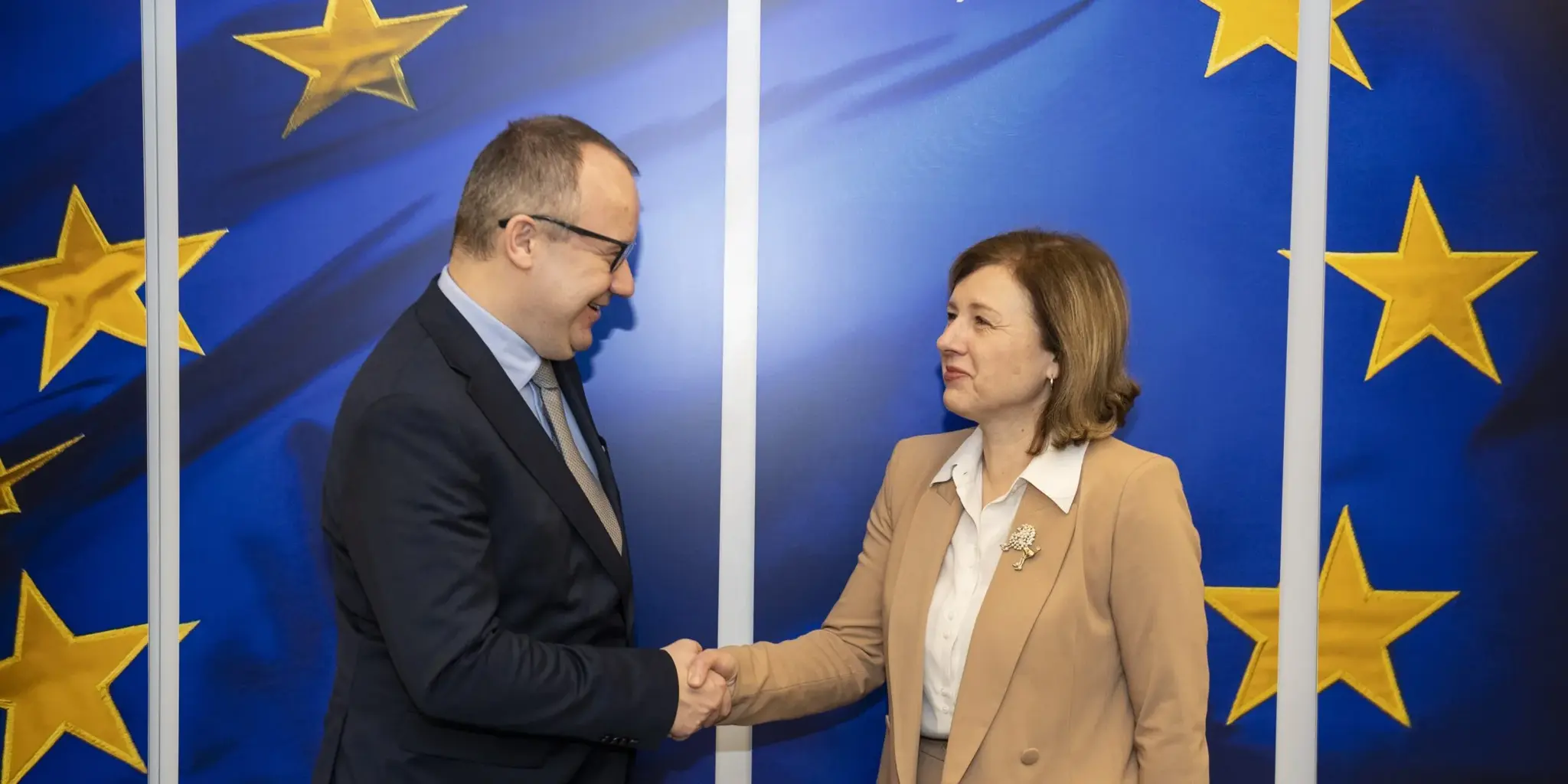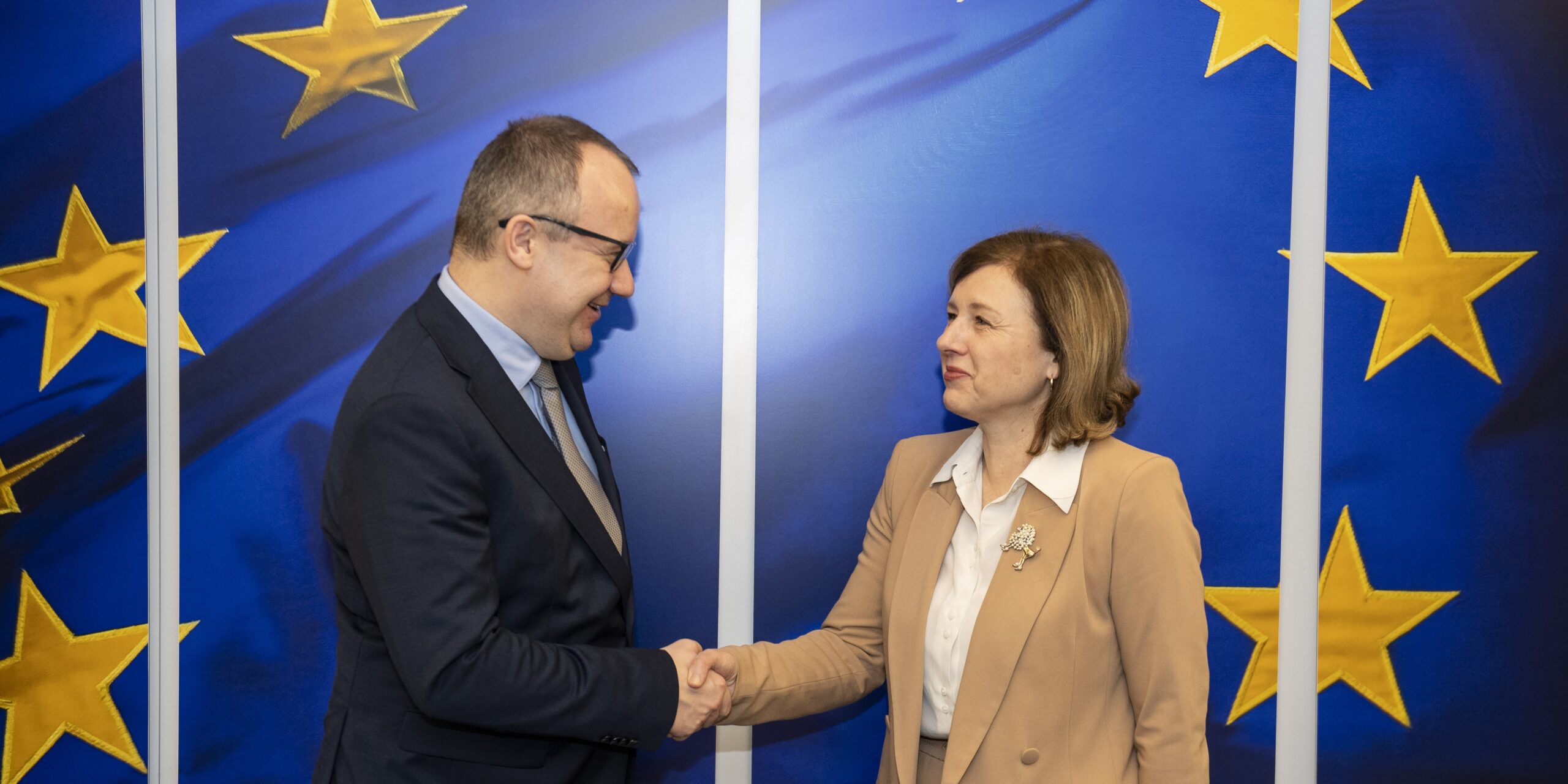- 115 Posts
- 29 Comments

 5·7 months ago
5·7 months agoTitle changed due to no mention of “almost 600 people” being targetted in other media articles on the affair.

 19·9 months ago
19·9 months agoIt’s still funny how PiS have used pretty much the entire state apparatus (public media, state companies, outright bribing rural populations to vote*) and still de facto lost.
*which as a side note some have claimed to have been another source of KO and TD votes
 1·9 months ago
1·9 months agoZmienił od tego czasu poglądy.

 91·11 months ago
91·11 months agoBefore you comment, this is the full announcement:
Announcement of the Minister of Culture and National Heritage
Due to the decision of the President of the Republic of Poland to suspend financing of public media, I decided to put into liquidation the companies Telewizja Polska S.A. and Polskie Radio S.A. and Polish Press Agency S.A.
In the current situation, such action will ensure the continued operation of these companies, carry out the necessary restructuring and prevent layoffs of employees in the above-mentioned companies. companies employees due to lack of financing.
The state of liquidation may be withdrawn at any time by the owner.
Bartłomiej Sienkiewicz Minister of Culture and National Heritage
And now some context from the article:
Today, Duda proposed his own alternative bill that would have maintained other government spending in the budget – such as the public sector pay rises – but did not include the funds for public media.
However, this morning, the speaker of parliament, Szymon Hołownia, who is one of the leaders of the new ruling coalition, said that he would not convene an early sitting of the house to discuss the president’s proposal, as Duda had requested.
This afternoon, before Sienkiewicz’s decision was published, Prime Minister Donald Tusk announced that the cabinet had decided that the 3 billion zloty previously earmarked for public media would instead be spent on cancer treatment and mental healthcare for children.
Tusk added that Duda’s veto had forced the culture minister to make certain decisions, which would be done “calmly and rationally”.
However, Sienkiewicz’s decision was condemned by figures linked to PiS and to the former management of public media. Samuel Pereira, a senior editor at TVP under PiS, said that the “usurpers are trying to bypass the National Court Register” – the body responsible for validating Sinkiewicz’s previous decision.
Shortly afterwards, President Duda’s chief of staff, Marcin Mastalerek, published a statement declaring the decision to put public media into liquidation as “an admission of defeat by the government”.

 12·11 months ago
12·11 months agoBefore you comment, this is the full announcement:
Announcement of the Minister of Culture and National Heritage
Due to the decision of the President of the Republic of Poland to suspend financing of public media, I decided to put into liquidation the companies Telewizja Polska S.A. and Polskie Radio S.A. and Polish Press Agency S.A.
In the current situation, such action will ensure the continued operation of these companies, carry out the necessary restructuring and prevent layoffs of employees in the above-mentioned companies. companies employees due to lack of financing.
The state of liquidation may be withdrawn at any time by the owner.
Bartłomiej Sienkiewicz Minister of Culture and National Heritage
And now some context from the article:
Today, Duda proposed his own alternative bill that would have maintained other government spending in the budget – such as the public sector pay rises – but did not include the funds for public media.
However, this morning, the speaker of parliament, Szymon Hołownia, who is one of the leaders of the new ruling coalition, said that he would not convene an early sitting of the house to discuss the president’s proposal, as Duda had requested.
This afternoon, before Sienkiewicz’s decision was published, Prime Minister Donald Tusk announced that the cabinet had decided that the 3 billion zloty previously earmarked for public media would instead be spent on cancer treatment and mental healthcare for children.
Tusk added that Duda’s veto had forced the culture minister to make certain decisions, which would be done “calmly and rationally”.
However, Sienkiewicz’s decision was condemned by figures linked to PiS and to the former management of public media. Samuel Pereira, a senior editor at TVP under PiS, said that the “usurpers are trying to bypass the National Court Register” – the body responsible for validating Sinkiewicz’s previous decision.
Shortly afterwards, President Duda’s chief of staff, Marcin Mastalerek, published a statement declaring the decision to put public media into liquidation as “an admission of defeat by the government”.

 5·11 months ago
5·11 months agoBefore you comment, this is the full announcement:
Announcement of the Minister of Culture and National Heritage
Due to the decision of the President of the Republic of Poland to suspend financing of public media, I decided to put into liquidation the companies Telewizja Polska S.A. and Polskie Radio S.A. and Polish Press Agency S.A.
In the current situation, such action will ensure the continued operation of these companies, carry out the necessary restructuring and prevent layoffs of employees in the above-mentioned companies. companies employees due to lack of financing.
The state of liquidation may be withdrawn at any time by the owner.
Bartłomiej Sienkiewicz Minister of Culture and National Heritage
And now some context from the article:
Today, Duda proposed his own alternative bill that would have maintained other government spending in the budget – such as the public sector pay rises – but did not include the funds for public media.
However, this morning, the speaker of parliament, Szymon Hołownia, who is one of the leaders of the new ruling coalition, said that he would not convene an early sitting of the house to discuss the president’s proposal, as Duda had requested.
This afternoon, before Sienkiewicz’s decision was published, Prime Minister Donald Tusk announced that the cabinet had decided that the 3 billion zloty previously earmarked for public media would instead be spent on cancer treatment and mental healthcare for children.
Tusk added that Duda’s veto had forced the culture minister to make certain decisions, which would be done “calmly and rationally”.
However, Sienkiewicz’s decision was condemned by figures linked to PiS and to the former management of public media. Samuel Pereira, a senior editor at TVP under PiS, said that the “usurpers are trying to bypass the National Court Register” – the body responsible for validating Sinkiewicz’s previous decision.
Shortly afterwards, President Duda’s chief of staff, Marcin Mastalerek, published a statement declaring the decision to put public media into liquidation as “an admission of defeat by the government”.

 17·11 months ago
17·11 months agoFigures from each of the three main groups that make up Poland’s new ruling coalition have outlined plans to introduce legal recognition of same-sex unions. However, one of them has ruled out the idea of also allowing same-sex couples to marry.
The new government was sworn into office last week, ending eight years of rule by the national-conservative Law and Justice (PiS) party, which had led a vocal campaign against what it calls “LGBT ideology”.
The new administration – made up of the centrist Civic Coalition (KO), centre-right Third Way (Trzecia Droga) and The Left (Lewica) – is expected to expand LGBT rights, though it is not clear to what extent. Their coalition agreement only mentioned making anti-LGBT hate speech a crime.

 61·1 year ago
61·1 year agoPoland’s main two parties, the national-conservative Law and Justice (PiS) and centrist Civic Platform (PO), have declared that they will oppose proposed changes to the EU treaties when they come before the European Parliament (EP) this week.
PO’s leader, former European Council president Donald Tusk, today warned that the ideas epitomise the kind of “naive euro-enthusiasm” that pushed the UK to leave the EU.

 131·1 year ago
131·1 year agoPO being the main party and de facto management of the KO coalition.
To be honest, this surprised even me. Maybe this is Tusk just trying to please the right. Issue is, they are going to attack the EU and him whether he does this or not.

 2·1 year ago
2·1 year agoThat and wood isn’t the best fuel overall. It’s okay for very local burning, but as a source of more concentrated energy just about all other fuels are better. There’s a reason you don’t see wood-powered electricity plants anywhere.

 4·1 year ago
4·1 year agoSwap Morawiecki with Duda and it’d be just as true. It’s also why even if Kaczyński will officially “retire” as chairman, he’ll still pull strings within the party so it doesn’t collapse.

 36·1 year ago
36·1 year agoCorrect.
It shouldn’t also surprise you that she was appointed by another homophobe and reactionary - education minister Czarnek.
Me personally, I won’t miss him, her or that party in the next government.

 37·1 year ago
37·1 year agoThe remarks were made by Barbara Nowak, the education superintendent for Małopolska, a province of 3.4 million people in southern Poland centred around the city of Kraków. The national government appoints one such official in each of Poland’s 16 provinces, where they are tasked with overseeing schools.
Nowak, a controversial and outspoken figure, was asked in an interview with news website Wirtualna Polska about claims commonly made by her and other Polish conservatives that the World Health Organisation (WHO) is seeking to “sexualise” children.
“The WHO outlines the aims to quickly interest young people in their bodies and in the pleasure of artificially aroused sexuality,” she answered. “These groups claim that the easiest way to relieve a small child’s emotions is through masturbation.”
“In Swedish preschools there are special rooms where the teacher goes with a child and masturbates them,” Nowak continued. “They then know that they can also masturbate on their own.”
 1·1 year ago
1·1 year agoCóż, Nawalny nadal jest w więzieniu i nie wiemy co się z nim dzieje, a większość partii demokratycznych w Rosji nie ma żadnych realnych zasięgów.
Więc dosłownie każdy nius o twardej opozycji będzie użyty. :P

 61·1 year ago
61·1 year ago…and thus begins PiS’s no-hope bid for a third term.

 9·1 year ago
9·1 year agoOh believe me, they’ve had quite the career in Poland too - breaking the rule of law, being reactionaries; basically anything your right-wingers would do and more. Even though our democrats (Lewica, KO, TD) overall won the Polish parliament with the upper house being effectively up for grabs, the lower house is still over 50% conservative. Some postulates may be passed via a referendum, but don’t expect any miracles, especially while PiS puppets still hold the presidency (until 2025) and the courts (often illegally).
 2·1 year ago
2·1 year ago41-LETNI Hassan (imię zmienione ze względów bezpieczeństwa) jest inżynierem melioracji, rolnikiem. Według aktywistów, z którymi rozmawiamy, oraz informacji, jakie nam przekazują, to również egipski działacz na rzecz praw człowieka. „Opozycjonista”, który uciekł z kraju.
Czemu?
„Hassan jest takim egipskim doktorem Judymem – niosącym wiedzę tamtejszym rolnikom” – mówi Magda Kalenik, niezależna aktywistka, współpracująca z różnymi organizacjami, która zna go najdłużej – od stycznia 2023 roku.
Hassan pomagał drobnym rolnikom w uprawie ich skrawków ziemi, nawadnianiu, rozwoju agrokultury. „Tym ludziom chciano zabrać te ziemie i Hassan zaczął uczestniczyć w ich obronie. Za to wsadzili go do więzienia, pobili, torturowali, potem znowu zamknęli. Wreszcie musiał uciekać z kraju, bo preparowali na niego dokumenty” – Magdalena Kalenik, która miała dostęp do dokumentów potwierdzające te historie. Były one także przedkładane w procesie azylowym.
Walka Hassana z wywłaszczeniami drobnych rolników trwała od 2011 do 2022 roku. W tym czasie był „nękany, regularnie zatrzymywany, aresztowany i poddawany torturom przez egipski reżim”.
Xenia Uranova zostaje. O walce Rosjanki z deportacją z Polski „To było bezprawne działanie” W styczniu 2023 roku Hassan dotarł do Polski. Nikt nie ujawnia, jak dostał się nad Wisłę, standardem jest jednak bałkański szlak. Trafił do strzeżonego ośrodka dla cudzoziemców w Krośnie Odrzańskim. Tam starał się o udzielenie mu ochrony międzynarodowej. We wniosku „przedstawiał liczne dowody na doświadczone przez niego prześladowania” – piszą aktywiści. Były to nagrania głosowe, wideo i zdjęcia z aresztowań i spraw sądowych, a także artykuły prasowe oraz dokumenty wydane przez organizacje broniące praw człowieka w Egipcie, poświadczające jego zaangażowanie walkę z nielegalnym wywłaszczaniem z ziemi oraz represje, które go za to spotkały.
Filip Rakoczy-Nazimek, radca prawny współpracujący ze Stowarzyszeniem Nomada, i pełnomocnik prawny Hassana, zapoznał się z częścią z tych materiałów – tymi, które udało się aktywistom już przetłumaczyć.
Jednak wniosek Hassana o udzielenie ochrony został oddalony w pierwszej instancji przez szefa Urzędu ds. Cudzoziemców. Odmowę utrzymała druga instancja – Rada ds. Uchodźców.
Czemu tak się stało?
„Z powodu błędów proceduralnych popełnionych przez cudzoziemca” – tłumaczy Filip Rakoczy-Nazimek. Przez pewien czas Hassana pozbawiono dostępu do prawnika.
Egipcjanin złożył wniosek do Straży Granicznej o zgodę na pobyt ze względów humanitarnych. Już po tygodniu dostał odpowiedź. Dwuzdaniową – SG nie będzie się tym zajmowała, bo wcześniej dostał odmowy w procedurze o ochronę międzynarodową.
„SG de facto nie wszczęła postępowania w tej sprawie, a powinna. Uważam, że to było bezprawne działanie, bo Egipcjanin złożył nowe dowody w swojej sprawie” – zaznacza Filip Rakoczy-Nazimek.
„Przesłanki udzielenia zgody na taki pobyt (regulowane w art. 348 Ustawy o Cudzoziemcach) są dużo szersze niż w przypadku ubiegania się o ochronę międzynarodową. Wystarczy wykazać m.in. zagrożenie prawa do życia i bezpieczeństwa, ryzyko pozbawienia dostępu do rzetelnego procesu sądowego lub ukarania bez podstawy prawnej” – dodaje radca prawny. Zaznacza, że pobyt ze względów humanitarnych jest słabszą formą ochrony dla migranta.
Odmowę Straży Granicznej Hassan dostał 13 października 2023 roku Wczoraj, 8 listopada, jego pełnomocnik złożył wniosek do Biura Rzecznika Praw Człowieka o ponowne wszczęcie postępowania w przedmiocie pobytu ze względów humanitarnych.
Mimo tego dziś rano Straż Graniczna rozpoczęła procedurę deportacji Hassana do Egiptu.
Wyścig z czasem Od rana aktywiści alarmowali media. „Apelowałabym o kontakt z liniami lotniczym LOT, aby nie dopuścić do tej deportacji. Oraz ze Strażą Graniczną, by wyrazić swoją niezgodę na takie łamanie praw człowieka i narażanie na utratę zdrowia i życia” – mówiła Zosia Kranowolska z Hope & Humanity Poland.
Magda Kalenik: „Polskie służby nie biorą pod uwagę tego, że jeżeli Hassan wróci do swojego kraju, to ponownie zostanie uwięziony, torturowany, a może nawet zginie. Apeluję, byśmy powstrzymali tę haniebną deportację do Egiptu ojca trójki dzieci. (…) Ocalmy człowieka i jego życie”.
Grupa Granica alarmowała bezpośrednio dziennikarzy, by nagłośnić sprawę. Ludzie umawiali się na lotnisku Okęcie na 16. Niektórzy dzwonili do LOTu, by firma, a zwłaszcza kapitan samolotu, mieli świadomość, kogo będą wieźć do Egiptu i co temu człowiekowi tam grozi. Kapitan ma prawo zdecydować o odmowie zabrania takiego deportowanego na pokład. Do akcji miały też dołączyć dr Anna Machińska, była zastępczyni Rzecznika Praw Obywatelskich i europosłanka Janina Ochojska.
Filip Rakoczy-Nazimek rano wysłał do Europejskiego Trybunału Praw Człowieka wniosek o interim measure dla pana Hassana – to forma czasowego zabezpieczenia przed deportacją. „ETPCZ zadziałał błyskawicznie. Już o 16:30 dostałem dokument” relacjonuje radca prawny. Od razu wysłał go do Straży Granicznej. W tym czasie dr Machińska, Janina Ochojska oraz Marysia Złonkiewicz, aktywistka z organizacji Chlebem i Solą, wylądowały na Okęciu – wracały akurat z premiery „Zielonej Granicy” w Brukseli. W trójkę pobiegły do SG, by osobiście poinformować o interimie dla Egipcjanina. „Dowiedziałyśmy się, że przeszedł już kontrolę paszportową i jest na pokładzie samolotu. Po kilku telefonach wykonanych przez kierownika zmiany dowiedziałyśmy się, że pan jednak nie poleci”, relacjonuje Złonkiewicz.
Po 18:00 Magdalena Kalenik już się cieszyła: „Hassan już jest w drodze do Krosna Odrzańskiego”.
Tylko na dwa tygodnie Filip Rakoczy-Nazimek tonuje nadmierną radość – interim jest tylko na dwa tygodnie. „To nie legalizuje jego pobytu w Polsce, nie powoduje, że wyjdzie ze strzeżonego ośrodka. To powrót do status quo. Dalej walczymy” – deklaruje. Jako pełnomocnik Hassana będzie ubiegał się w Straży Granicznej o wszczęcie postępowania na zgodę o pobyt ze względów humanitarnych. Ze względów proceduralnych obecnie tylko takie rozwiązanie wchodzi w grę.

 1·1 year ago
1·1 year agoPresident Andrzej Duda has announced that he will give current Prime Minister Mateusz Morawicki and his national-conservative Law and Justice (PiS) party, which has ruled Poland since 2015, the first opportunity to form a new government.
In a speech to the nation this evening, the president noted that no single group had won a parliamentary majority at the 15 October elections. He then declared that, in keeping with tradition, he would nominate as prime minister the candidate of the largest party, which in this case is Morawiecki of PiS.























Title changed due to no other media article mentioning “almost 600 people” being targetted with the Pegasus spyware in Poland.